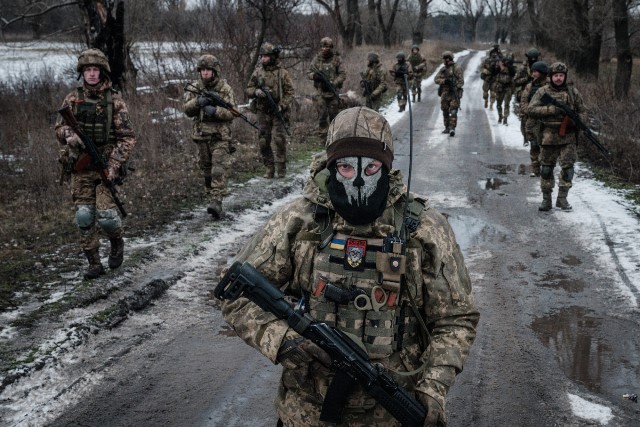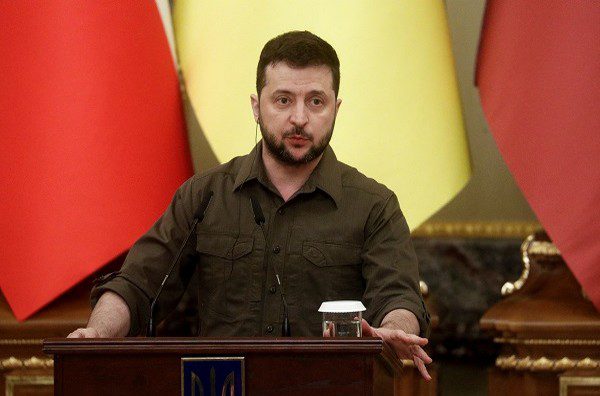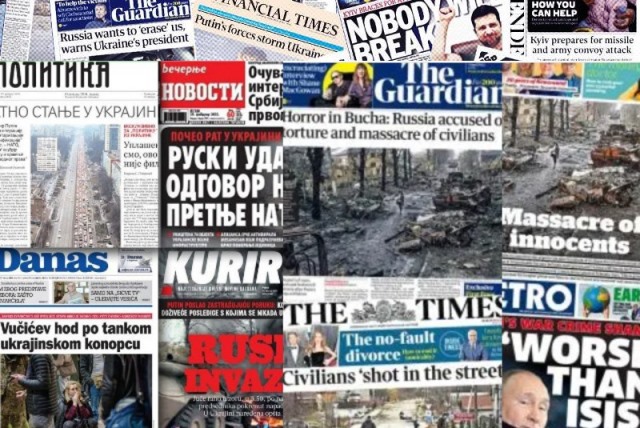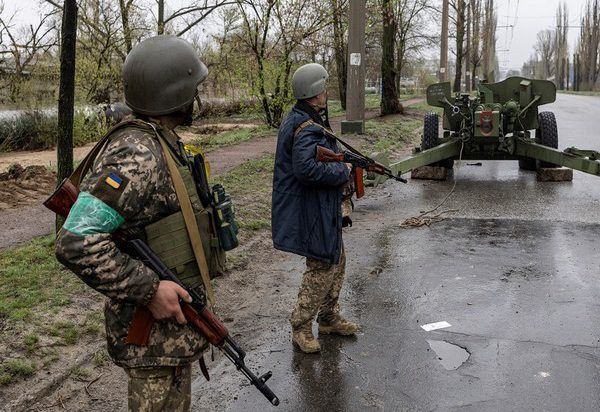History has shown that liberal democracies tend to be the most dangerous in wars, using weapons that others hesitate from deploying. It was the United States that first used nuclear weapons in the Second World War in Hiroshima and, egged on by the British, a second one was lobbed at Nagasaki. There was no call for a second atrocity of that level.
The United States used napalm, Agent Orange, phosphorous and similar agents in Vietnam. It also used cluster bombs in Laos and some other countries. These are still being cleared. However, both Russia and Ukraine have used them. Cluster bombs are considered to kill more civilians than enemy soldiers.
That the USA is now sending these bombs to Ukraine may be a sign of the fatigue setting in United States or a realisation that Russia won’t be defeated. This war has essentially been a war for defending American global hegemony and, on the part of Russia-China, to push it back now and move on to a new world order.
That it is ultimately about the new world order rather than Ukraine, is evident from the constant usage of the words ‘challenge to world order’ or international rule based order. No one seems to be defining what this international rule based order is or what world order is being challenged. Words are used carefully to leave impressions without exposing what they are really meant to be.
The current world order is Pax Americana which seems to be weakening at the moment. Pax means peace. It is peace on America’s terms. The rule based order simply means that the rules of international relations, nation states etc are made by USA, UK and to some extent EU. They decide whose borders can change when and who can get independence etc.
There are other undercurrents that are at play in Ukraine. Eastern Europe and Russia were not involved in colonialism of the type the occidental world engaged in. These countries are less inclined to be evangelist about ideology.
EU and NATO on the other hand still have colonial mentality and seek to change the world into democracies of the kind they prefer. NATO has managed to recruit some of the Eastern European countries to this but is now pushing Ukraine to bring down Russia a peg or two to maintain belief in liberal democracy as a better system.
The difference between the Occident and Russia is that the Occident gains territory by converting rather than annexing it. It annexes it ideologically and makes it its foot soldier as it has done with Poland and much of Eastern Europe and now seeking to do with Ukraine. Russia and China gain territory by occupying and installing governments controlled by it. Ukraine thus is simply a pawn in this game. The average Ukrainian is a helpless victim in a global game of hegemony and being pushed by its own Ukrainian leaders to risk their lives in this. A lot of Ukrainian hierarchy have benefitted financially from this. The United States itself has admitted that corruption is widespread in Ukraine. The US can throw a lot of money at the opportunists in Ukraine who force their countrymen to join the war.
ALSO READ: Theatre of War Horrors in Ukraine
However, the USA seems to be getting a bit stretched by the resources on another yet wasteful war. It lost enough in Afghanistan and now is seeing Ukraine falling apart. In desperation, it is willing to use hideous weapons.
Moreover, there are a number of US and British personnel now stationed in command centres in Ukraine training and directing the war. They probably run into thousands; Russia has hinted to USA that it will attack the command centres in a clear message that it will kill American and British officers if F-16 aircraft are handed to Ukraine.
The war therefore is being run by USA with NATO, but with Ukrainians as the soldiers. It is not surprising then that Zelensky gets frustrated quite often. He is quite aware that he is but a pawn. He angrily asks for more weapons so that he can ‘finish’ the job for USA. Ukrainian politicians are habitually saying that they are fighting for the survival of the West. They don’t say survival of Ukraine.
Ukraine was never under threat. All it had to do was accept autonomy for the Donbass as UK has done for Scotland and Northern Ireland. It could have retained its territorial integrity. However, as a few American politicians and Generals have said, Ukraine cannot decide without the USA agreeing to it. In effect Ukraine has become a vassal State for NATO under USA, and Russia is now seeking to break it to control parts of it.
Russia too has been quite brutal in this war. It is considered to have blown the Nova Kakhovka dam to sabotage the Ukraine counteroffensive. However, Russia has also been a bit naïve in some ways. It could have gone in all guns blazing at the start and taken over Kiev. It chose to send in forces to scare Ukraine and gain its agreement to its terms.
An agreement was reached with Ukraine to talk about mutually acceptable terms and Russia withdrew. But Ukraine under instructions from USA, then reneged on this. Russia has still been reluctant to use some of its most dangerous weapons. It is fighting an old-style territorial war with Ukraine. There may be many reasons for this.
As a senior NATO officer has said, Ukraine is also an experimental ground for both sides on how wars will be fought in future as well as real testing ground for some of the weapons. The USA has been handing out some experimental weapons and testing them in Ukraine. NATO and Israel have also tested their missile defence equipment against some of the most advanced Russian aircraft. Where they have been shown to be defective, lessons have been learnt.
Russia too has been doing that. Both have also increased the sale of their weapons worldwide. It is one thing to see missiles and fighter jets in an Arms show, but quite another when they are tested against sophisticated defence equipment. Britain’s Himars and American Patriot defence systems have both been show-cased here. Russia claims to have learnt a lot about sabotaging them while NATO is learning what needs to be re-engineered.
It has been surprising why Russia did not resort to the form of warfare that United States deployed in Iraq or Afghanistan. In both, America went in with the hammer, conquered everything and destroyed the defences. Russia could have destroyed all Ukrainian infrastructure such as railway lines, roads, airports etc. This could have made it difficult for any equipment to come into Ukraine. Russia however chose to destroy a few as warning and permitted an endless supply of weapons to Ukraine. The possible reason must be that both Russia and USA now see the war as a training ground for a future war.
There is another lesson that Russia may have learnt from American excursions in the last five decades. The USA goes in heavy but then gets stuck in a quicksand taking years to extricate itself from the trap. It eventually lost in Vietnam, in Iraq and in Afghanistan among other places. Russia has avoided that prospect and has perhaps been hoping for a shorter war lasting two to three years in which all will be decided.
The other dimension to this war may be the American establishment trying to take its revenge on Putin for having installed Trump in USA as President. It made the Pentagon and USA establishment a laughing stock. Putin was able to manipulate the American system and place a President at the highest office amenable to him. The American establishment want to send a clear message to Russia. Prigozhin revolt could have been an American stunt without the later knowing that he was a pawn. Putin has been more resilient.
The war will end sooner or later with Russia getting most of what it wants and rest of Ukraine becoming part of the ‘West’. There are however two other rogue elements. Poland is greedily eyeing parts of Ukraine and hopes the western part of Ukraine falls to it. So does Hungary which is looking at the Southwestern regions of Ukraine. Both countries are hoping that Ukraine will fall apart. Putin appears quite OK with this. In fact he hinted at this at the beginning of the attack on Ukraine.
One feels extremely sorry for Ukrainians. Ukraine has become the Afghanistan of the Balkan region. It is sought by great powers, not for resources but to entrench their own hegemony and power in the world. Afghanistan has been constantly on the menu of Pakistan and Iran who had hoped that it would disintegrate with each taking parts of it. Afghanistan has survived. Will Ukraine survive the great powers and their games and the opportunist designs of Uktraine’s neighbours?








